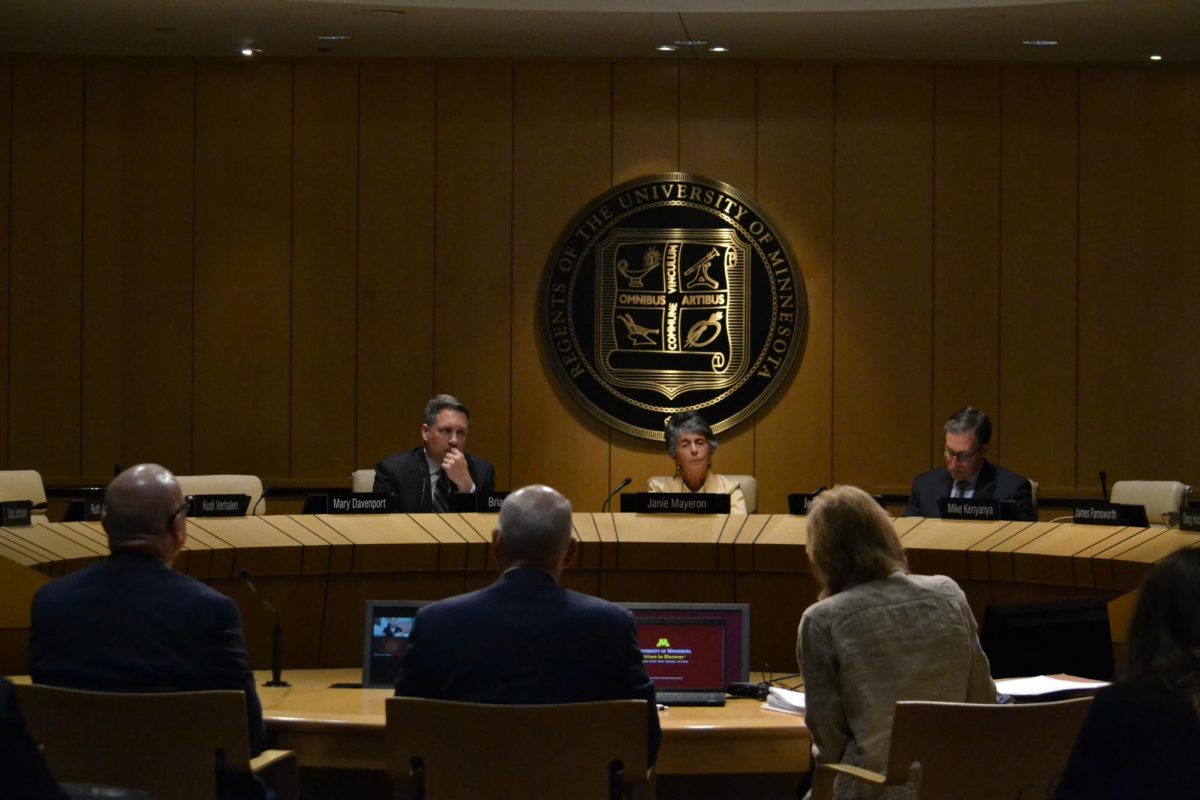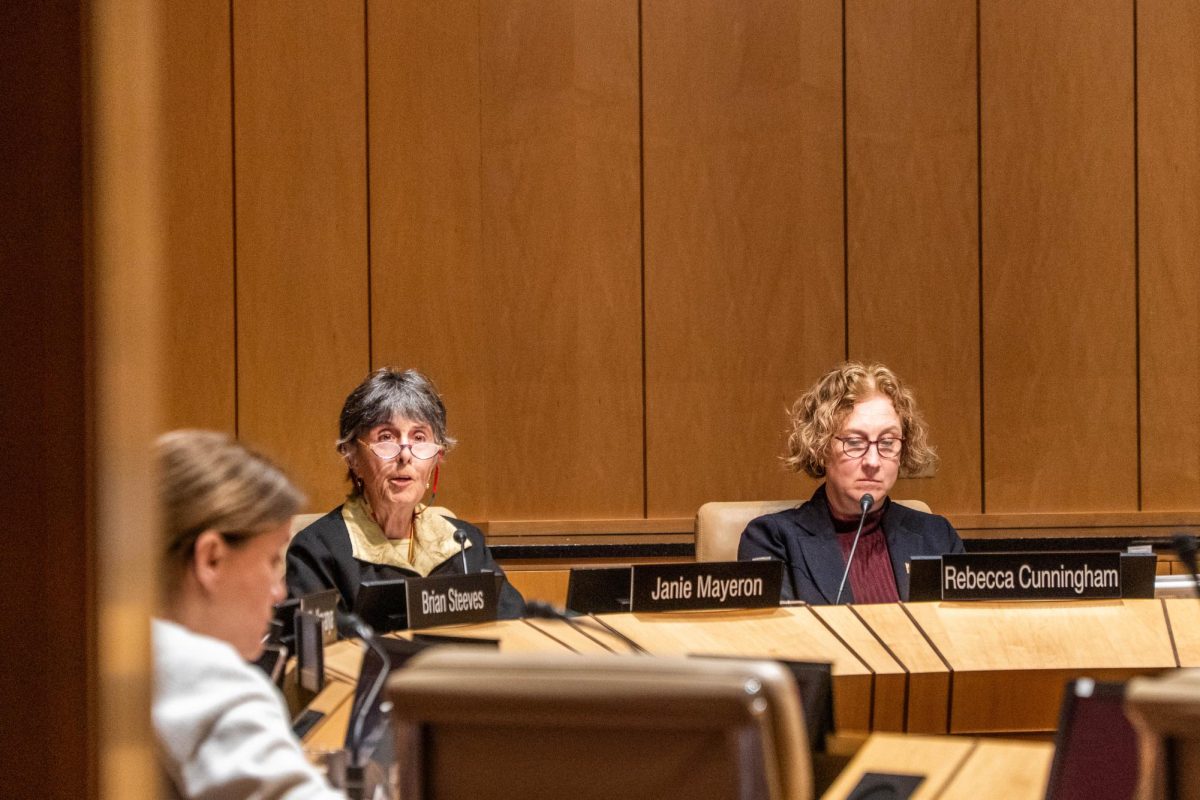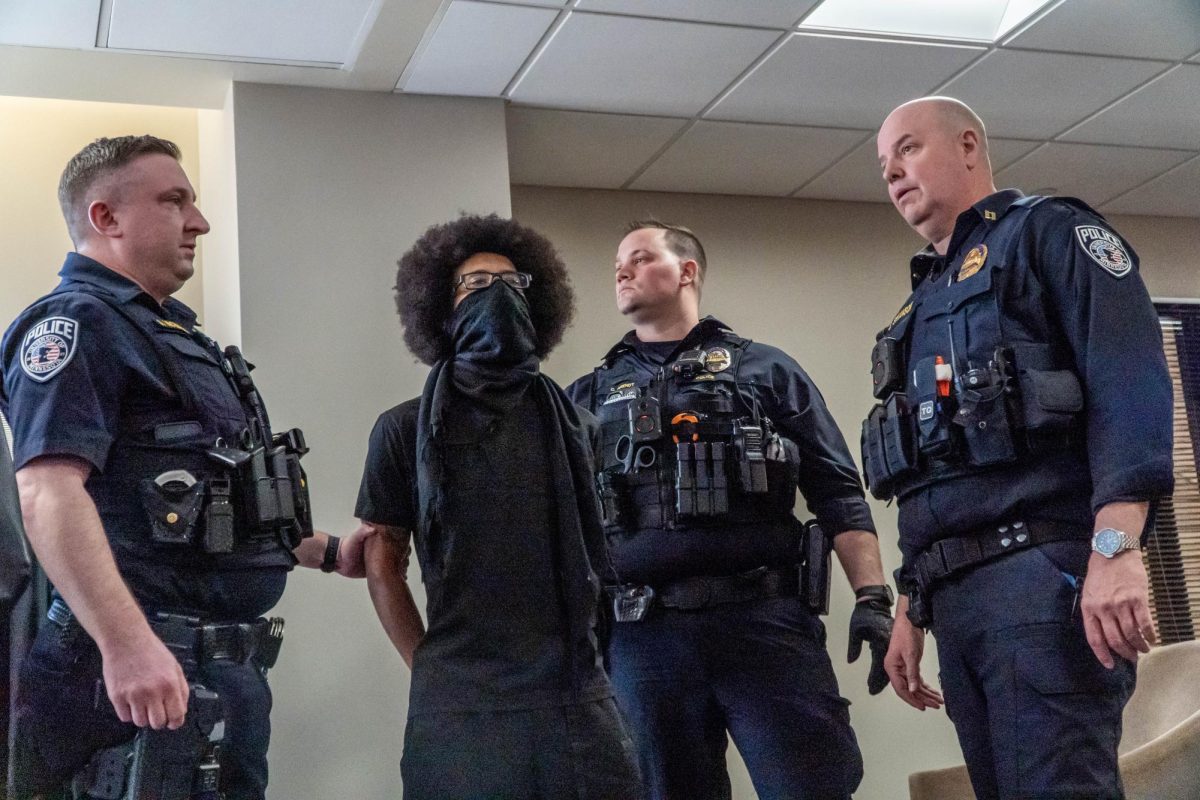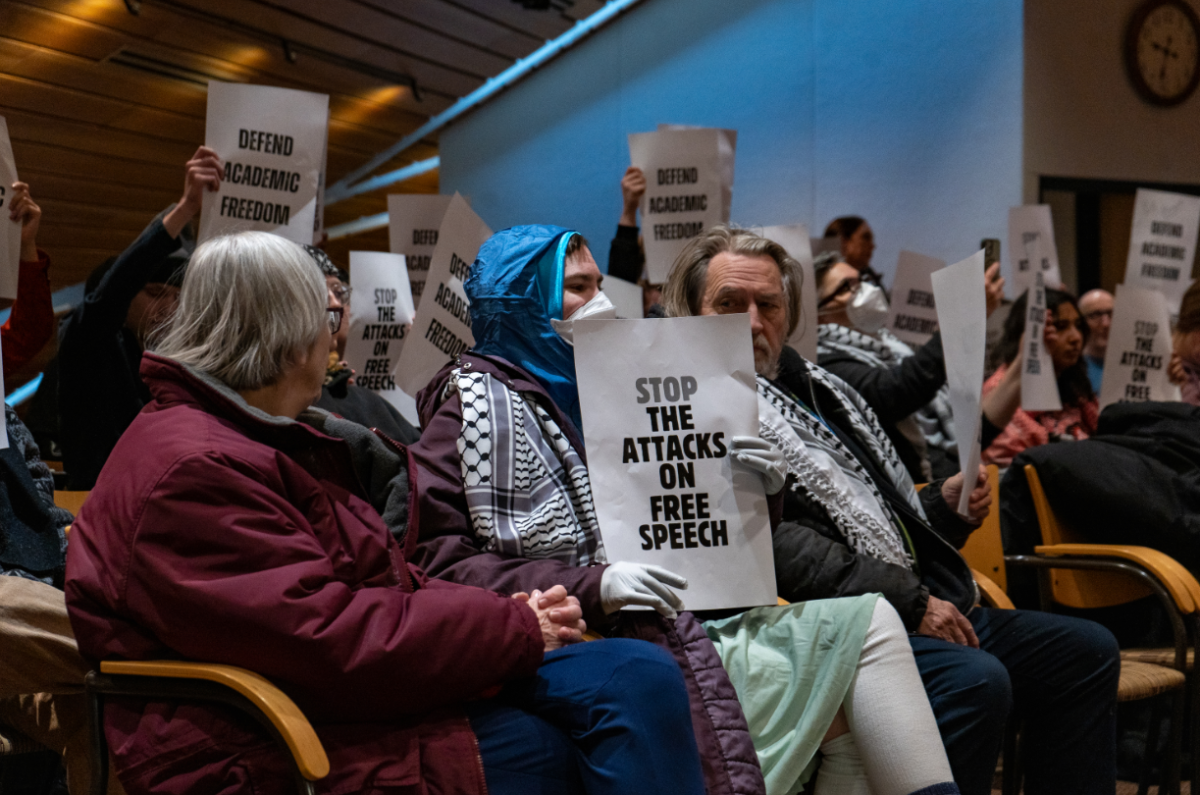The Board of Regents unanimously approved the profile for the 18th University of Minnesota president and reviewed the financial plan for their agreement with CentraCare at a special meeting on Thursday.
Candidates for University president will be narrowed to two to four finalists by late January. There was no action taken on the approval of the CentraCare financial plan, but the Board will decide at their next meeting in December.
The Presidential Position Profile
The Board voted unanimously to approve the position profile the Presidential Search Advisory Committee (PSAC) will use to narrow down candidate finalists for the University’s 18th president.
Chris Uggen, vice chair of the PSAC, said the Board will be looking for someone who will embody the University’s mission and act as a vigorous long-term advocate for the University’s interests.
According to the University’s webpage, their mission is to generate knowledge through research, share that knowledge through education and extend that knowledge to the community through public outreach.
“It’s a huge, wide-ranging job, but it’s also the coolest job in the world for the right candidate,” Uggen said.
Uggen said the PSAC has every intention of recruiting a “world-class leader” to serve as the University’s next president. The PSAC held a total of 21 public listening sessions systemwide from Oct. 17 to Oct. 24.
Mary Davenport, chair of the PSAC, said they received nearly 800 comments across different platforms that helped them build the position profile.
The Academic Affiliation Agreement
The Board reviewed the financial plan for the Academic Affiliation Agreement (AAA) between the University and CentraCare that was approved by the Board at their meeting on Oct. 12.
The agreement will establish a new regional medical school campus in St. Cloud and expand opportunities for post-graduate residencies at CentraCare facilities.
Bill Sibert, senior associate dean of the University Medical School, said the AAA was created to address the need for more physicians in rural Minnesota.
Sibert said the AAA expects a $1.5 million loss per year once the program is fully operational. CentraCare will be covering any deficits, but a joint fundraising campaign led by the University and CentraCare will help lower the deficit.
According to Sibert, it is a financially sustainable plan. The model he proposed during his presentation is already in use at the Twin Cities and Duluth medical schools.
“We’ve done this before. We’re doing it now and we believe we’ll do it even more successfully in another location,” Sibert said.





















Gianna Bari Lassiter
Nov 7, 2023 at 11:13 am
Informative article. I wasn’t aware of the CentraCare partnership before reading this. Thank you for this insightful reporting